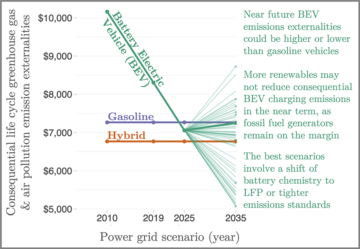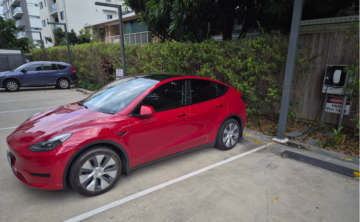In the past two years I’ve read many deep and interesting books, from Kahneman’s Noise to Malhotra’s Negotiation Genius to Wohlleben’s The Hidden Life of Trees. But as a strategist, a pair of books stand out as I think about the world and its trajectory.
The first is Martin Jacques’ When China Rules the World: The End of the Western World and the Birth of a New Global Order. The second is one I just finished, Krastev and Holmes’ The Light That Failed: A Reckoning. Between them, they span much of the globe and its power struggles not only over decades, but in the case of When China, over millennia. They were published within a few years of each other, but what a few years indeed.
I’ve been following China’s transition much more intently in the past decade. As decarbonization of our global economy has shifted into high gear, China has been both a global pariah and global leader. It intentionally prioritized its citizens’ wealth over environmental health through the 1980s and 1990s. It turned itself into the biggest annual producer of greenhouse gases over the past four decades, albeit one with still half the emissions per capita of the US or Canada and not overtaking the US’ historical record of 75% of all greenhouse gas emissions.
But for the past 20 years, China’s been strongly focused on being the provider of the low-carbon technologies of the future. It now provides 80% of the world’s solar panels, something which is causing a backlash in Europe and North America. It has 7 of the top 10 of the world’s largest manufacturers of wind turbines, and while it’s not in the top spot yet, it’s vying to displace Vestas and GE.
It has well over 400,000 electric buses on the roads of its massive cities, when most other countries are struggling to approach 1,000, and it’s exporting them to other countries. It buys half of the electric cars and light trucks sold in the world. In 2020, it built as much wind and solar generation as the rest of the world combined. Two-thirds of the high-speed electrified passenger trains that exist in the world is inside the borders of China.
About 90% of the world’s under-construction grid-scale electricity storage is in China. It’s on track to reach its admittedly light Paris Agreement targets 9 years early and has set a goal of carbon neutrality by 2060. As COP26 starts, the PR blips are about Xi Jingping not attending in person, and China increasing coal production to cover winter shortfalls, but China has been underpromising and overdelivering on climate for years.
Friends and acquaintances who visit and live in China tell of city streets rendered pollution-free and comparatively silent by electric vehicles. And others point out that that the provinces aren’t like Beijing, Shanghai, or the Pearl River Delta, but are often lagging.
When China was released in 2009. It predates the current era of Chinese politics, when Xi Jinping ascended to the top leadership role and arranged to become the President for Life, just as Mao was until his death, and Putin has become in Russia. The book was written in perhaps a more hopeful period, but remains prescient and deeply informative about what Xi and China are doing. Democratic reforms were being experimented with in the provinces, and there was hope that they would rise to national levels. China has intentionally experimented with reforms since 1978, embracing some as they succeed and rejecting others considered to have failed. Xi’s rule has seen an increase in authoritarianism and traditionalism. But just as Mao’s Little Red Book borrowed heavily from Confucianism while trying to supplant it, so does Xi’s rule lean heavily and much more conspicuously upon it.
There is more filial piety, deference to the elderly, communalism, and unity of the nation in Chinese cultural assumptions than in most western democracies, but these are not foreign or ugly concepts, just differently weighted. China maintains a network of hundreds of Confucius Institutes and over a thousand Confucius Classrooms globally, although mostly they teach Mandarin to people in other countries, assisting with China’s actual power, the soft one of trade.
One clear difference that many cite is that China considers itself a civilization state, not a nation state. Westphalian and UN-era concepts and structures are grafted onto something older and bigger, with an emphasis on historical continuity across a broad geographical region that pre-dates the concept of nation-states. While China was the first to be described in this way, the concept has been applied to Russia, Egypt, and others, none of which are as ascendant, but all of which have a deep perspective of their own uniqueness and greatness.
Part of Jacque’s thesis is concerned with an increase in regionalized, diverse, indigenous expressions of national-scale organization, ones more respectful and cognizant of the pasts of the peoples. Not necessarily nationalistic, but one less interested in what the ‘right’ or ‘inevitable’ form of future self-governance should be than the rise of different expressions of national organization and governance that collaborate internationally without being the same. China’s non-democratic, Confucian, mercantilist, civilization state becomes a permanent piece of the patchwork quilt of the international polity, not something to be transformed, or something transformative, in Jacque’s view. China itself makes it clear that multiple models can exist, even as it makes Hong Kong’s “one country, two systems” model increasingly less distinct.
Mao’s failed efforts at expanding China’s model of communism globally are well in the past, and there’s little reason to believe that China sees any need to export its model and structure to other countries. It is not proselytizing, it’s trading.
I’m assembling a list of books in fields I’m interested in that could be considered fundamental modern texts. When I say fundamental, I mean that I don’t think it’s reasonable to assert that you have an informed opinion without having read, assessed, and addressed the arguments of the text. In terms of China, Martin Jacque’s book is that fundamental text.
I don’t think The Light That Failed is a fundamental text in the same way. This is not to denigrate or dismiss it. The work is an excellent counterpoint to When China and provides a western view on the modern era that complements it. It even addresses China at the end, briefly, lightly, and not nearly as interestingly, in my opinion.
What The Light That Failed is concerned with is the apparent faltering and perhaps failing of liberal democracy as a global ideology over the past 30 years. A newer book, it has the advantage of another 11 years of history, having arrived in 2020. It has internalized to a degree Xi’s rise in authoritarian rule, but perhaps not contextualized it as well.
The majority of the book is mainly concerned with the rise of authoritarianism in eastern Europe and the rise of Trump’s authoritarianism in America. Its main thesis is that the enforced imitation of liberal democracies imposed on eastern European states after the fall of the Berlin Wall led to resentment and rejection. It spends considerable time on imitation breeding that resentment, and the forms of fake imitation as a destructive weapon.
Orban, Putin, and Trump orbit one another in this book, with remarkable alignment between their conspiratorial, hostile perspectives. All consider liberal democracies to be failures. All are populists. All deceive for their own ends. All consider the actions of other nations to always be self-serving, hostile to others, and deceptive, indicative of psychological perspective on their parts. All consider America’s attempts to bring liberal democracies to other parts of the world to be to the world’s and America’s detriment, not something supported by objective reality, albeit with sufficient truth to be wary of overstating successes such as the rebuilding of Germany and Japan.
Putin is shown to be a harsh mirror to the US, intentionally parroting liberal democratic ideals and rhetoric as the basis for annexing Crimea in order to expose the assumed hypocrisy of the west, as one clear example. It’s an interesting read, and an unsympathetic one. This isn’t to say I have any sympathy for Putin, but that it seems a stronger assertion than the evidence suggests. Sometimes things are simpler than they are presumed to be, and most people — even frequently bare-chested, stallion-riding, former KGB agents who have ascended to rule their country — aren’t playing 3D chess.
While China’s Confucius single-party system has prioritized climate action and has been focused on owning many of the major industries of the post-carbon economy, western liberal democracies have fallen behind. The Biden Administration’s persistent snubbing of Tesla, one of the few bright spots in America’s contributions to the low-carbon industrial giants of the future, is a case in point. Putin is barely coming to the table on climate action, Trump withdrew the US from the Paris Agreement, and Orban blames the EU’s climate policies for the European energy crisis.
But the similarities are that while China expresses one non-western liberal form of governance and cultures, eastern European countries are hunting for their own indigenous governance and cultures, not accepting Fukuyama’s view of The End of History any more than Osama bin Laden and his coterie of mostly Saudi Arabian hijackers did. In Orban’s case, he plucked a period out of Hungary’s deep past around 1100 CE and has proclaimed this to be the true Hungarian model, not the Soviet-era enforced imitation of communism or the post-1989 pressured imitation of liberalism.
Both books accept that history did not end with liberal democracy being the only correct and inevitable form of government. When China is more optimistic, but predates China’s Xi. The Light That Failed is more pessimistic, but also leans into the concept of a diversity of national concepts of self, governance and structure, mostly collaborating with one another.
Personally, I’m on the side of the optimists. I have seen two steps forward and one step back too many times in too many contexts to assume that the illiberal reaction and Xi’s ascent are the ends of progress. My utilitarian perspective is concerned with the greatest good for the greatest number, not an ideological assumption of liberal democracy being the only path to that end. China’s rise has brought hundreds of millions out of poverty, not only in China. China’s clear and massive actions toward climate stability exceed any other country’s in magnitude. China has been a careful, intentional and focused member of global, post-Westphalian organizations such as the WTO.
The US’ massive focus on hard power will decline, just as the British Empire’s navy mostly disappeared (while its failing economy still struggles with the hangover of nuclear submarines, as one recent example). It will become simply one of the major economies competing on relatively equal footing with the major economies of the EU and China. They will be different, not necessarily equal, but will communicate and trade across cultural and politic variances.
And in a final note, everything south of the equator, including Africa’s 55 countries and billion plus populations, and India’s hundreds of languages and dialects, and billion plus population, are almost entirely absent from these two books. While the northern hemisphere is richer, more populous, and more globally influential, more than a quarter of the world’s population is gaining ground economically, and they have yet again different cultural assumptions, ones that there are less likelihood of them being asked to give up.
And so, two books, well worth reading. I think When China is more important to read for westerners than The Light That Failed, but the two together paint a much more interesting picture of the past and potential future than either does by itself.
A version of this article appeared previously in The Future Is Electric.
Appreciate CleanTechnica’s originality? Consider becoming a CleanTechnica Member, Supporter, Technician, or Ambassador — or a patron on Patreon.

- 000
- 11
- 2020
- 3d
- 7
- 9
- Action
- ADvantage
- Advertise
- agents
- Agreement
- All
- america
- arguments
- around
- article
- Audible
- Beijing
- berlin
- biden
- Biggest
- Billion
- Books
- British
- Buses
- Canada
- carbon
- cars
- Chess
- China
- chinese
- Cities
- City
- cleantech
- Cleantech Talk
- climate action
- Coal
- cognizant
- coming
- considers
- countries
- crisis
- Current
- Delta
- Democracy
- DID
- Diversity
- Early
- eastern
- eastern europe
- economy
- Egypt
- Elderly
- Electric
- electric vehicles
- electricity
- Emissions
- ends
- energy
- environmental
- EU
- Europe
- European
- expanding
- export
- fake
- Fields
- First
- Focus
- form
- Forward
- future
- GAS
- ge
- Gear
- Germany
- Global
- Global economy
- good
- governance
- Government
- greenhouse gas
- Greenhouse gas emissions
- Guest
- Health
- High
- history
- HTTPS
- Hundreds
- Including
- Increase
- industrial
- industries
- International
- IT
- Japan
- Languages
- Leadership
- Led
- light
- List
- low-carbon
- major
- Majority
- mirror
- model
- network
- North
- north america
- Opinion
- order
- organization
- organizations
- Other
- Others
- paint
- paris
- Patreon
- People
- perspective
- perspectives
- picture
- podcast
- policies
- politics
- population
- Poverty
- power
- pr
- president
- producer
- Production
- reaction
- Reading
- Reality
- REST
- roads
- rules
- Russia
- sees
- set
- shanghai
- So
- solar
- solar panels
- sold
- South
- Spot
- Stability
- State
- States
- Steps forward
- storage
- Supported
- system
- Technologies
- Tesla
- The Future
- the world
- time
- top
- track
- trade
- Trading
- trains
- Trucks
- trump
- unity
- us
- Vehicles
- View
- Wealth
- West
- Western World
- WHO
- wind
- within
- Work
- world
- worth
- xi jinping
- years





